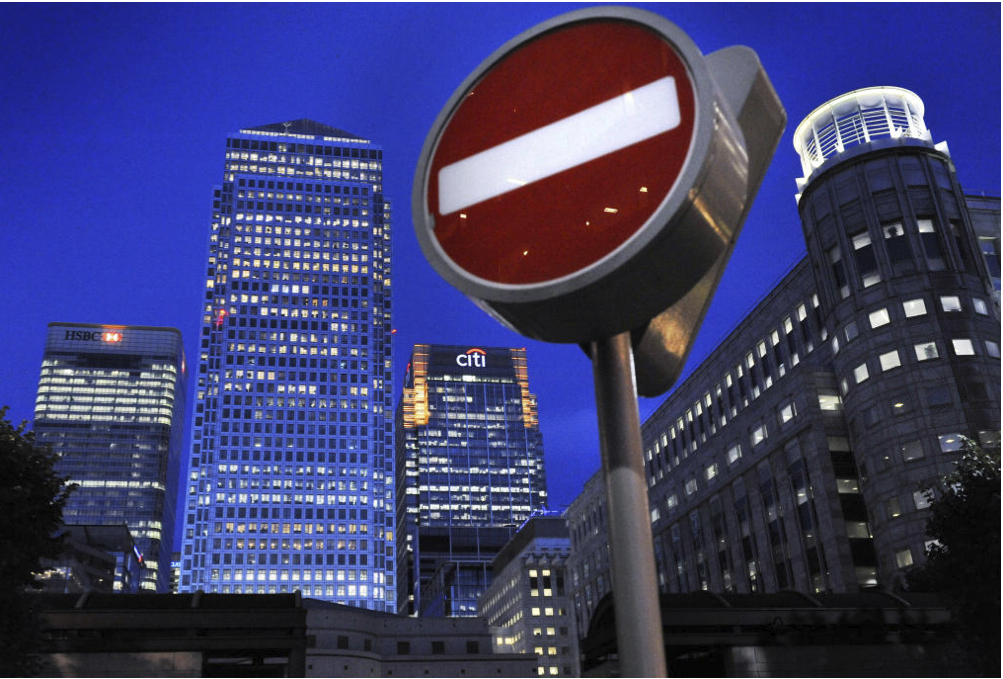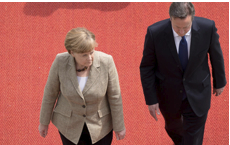
With eyes fixed on Greece, Europe’s politicians and media are ignoring a weighter economic and geopolitical threat – ‘Brexit’. The United Kingdom is the European Union’s second-largest economy and a military and political heavyweight; it is also the world’s oldest parliamentary democracy and an ardent promoter of free markets and decentralisation. What would the EU look like without the UK? Who would lose the most economically and politically?
Summary
While it is hard to predict the economic consequences for the UK of leaving the EU, the impact on the rest of Europe is equally incalculable. The effects would certainly be much more dramatic and negative than those resulting from a ‘Grexit’. The EU’s status as a competitive and credible global player could be put at risk as the continent succumbs to economic and political sclerosis. The biggest losers could be Ireland, the UK’s closest neighbour, and Germany, its most important European ally and trading partner.
Since Greece held elections early in 2015, the financial crisis in that country has intensified, bringing the possibility of a Greek exit from the Eurozone to the centre of contingency planning in Brussels and Frankfurt. For years, the EU has done everything in its power – including taking steps once deemed impossible or exceeding its legal mandate – to ward off the spectre of ‘Grexit’. Otherwise, we are told by German Chancellor Angela Merkel and others, ‘Europe will have failed’.
But what about the UK, which has been toying with the idea of life outside the EU for much longer? Few people outside the UK seem to be worried about the country departing from the EU altogether. But with the surprise victory of Prime Minister David Cameron’s Conservatives, it is now plain that there will be an in-or-out referendum before 2017. Whether Britons will vote to remain in the EU is uncertain.
Massive consequences
In the worst case, assuming no new trade agreements and economic isolation, total output in the UK would drop by 2.2 per cent
The danger of ‘Brexit’ is not just real; its consequences massively outweigh those of a `Grexit’. The UK accounts for 15 per cent of the EU’s economic output, putting it well clear of France as the bloc’s second-largest economy. Within 30 years, if favourable demographic trends hold, the UK could actually overtake Germany as Europe’s biggest economy. By contrast, Greece’s share of the EU’s GDP is only 1.3 per cent.
The purely economic consequences of ‘Brexit’ are hard to calculate, both for the UK and for its EU trading partners. They crucially depend on what post-`Brexit’ arrangements a new UK government (most likely no longer led by David Cameron) would manage to negotiate with Brussels.
In our previous report (June 17, ‘UK’s in or out referendum on EU could be catalyst for change’), we referred to a comprehensive study by the think tank Open Europe, which tried to assess the net effect on the UK economy of leaving the EU. Assuming `politically realistic’ scenarios in which bilateral trade agreements were reached between the UK and the EU, and depending on the British government’s willingness to use its new sovereignty to push pro-market reforms, the UK economy could suffer a ‘permanent loss’ of as much as 0.8 per cent of GDP or gain as much as 0.6 per cent of GDP by the year 2030. In the worst case, assuming no new trade agreements and ensuing economic isolation, total output in the UK would drop by 2.2 per cent.
Foregone growth
What would this imply for the UK’s European trading partners? Obviously, international trade is not a zero-sum game in which other European economies would gain what the UK loses. On the contrary, trade is a positive-sum game; and new artificial barriers to trade would hurt on both sides of the border.
The German Bertelsmann Foundation estimates that the EU (excluding the UK) would lose between 0.1 and 0.36 per cent in real GDP per capita from foregone growth in foreign trade. Depending on the extent of the UK’s isolation, Germany’s real GDP per capita would reduced by 0.1 per cent to 0.3 per cent in 2030 by trade effects alone.
Individual industries would suffer in varying degrees from lost export sales to the UK. The German automotive industry would be hurt the most, with total sales dropping by up to 2 per cent. The electronics, metals and food industries would also see negative effects.

Less innovation
These figures reflect only the static effects of increased trade barriers and transaction costs. From a dynamic perspective, the costs of `Brexit’ could be much higher for all parties. These could include less competition, less innovation and a less efficient division of labour. Their potential cost in terms of lower economic growth is even more difficult to calculate ex ante than is the case with static effects.
Chief executives of Germany’s major companies operating in the UK haven’t been shy about expressing concern over a potential `Brexit’. About 2,500 German companies, mainly in energy, manufacturing, transport and finance, employ 500,000 people in the UK. Among these investors are such leading global brands as BASF, BMW, DHL, ThyssenKrupp and Volkswagen.
Paul Kahn, head of the European aerospace group Airbus’s UK unit, recently warned of the `huge’ risk of economic disruption posed by a potential pull-out from the EU. Everything Airbus makes in the UK – along with investment, research and jobs for 16,000 local employees and many more at the company’s suppliers – depends on `industrial organisation and integration’ on a European scale, Kahn said.
Taxpayers in EU member states should also be concerned. The UK is the second-largest net contributor to the EU budget after Germany. In 2013 UK taxpayers put 10.8 billion more euros into the EU pot than they took out, according to a report by The Telegraph. To compensate for lost revenue in the event of a British exit, Germany would have to pay 2.5 billion euros more into the EU budget each year. The annual bill would be an extra 1.9 billion euros for French taxpayers, while Spain would have to pay almost 1 billion euros more, according to the Bertelsmann Foundation study.
Ireland’s Troubles
There is no question that the country hardest hit by a `Brexit’ would be Ireland. As a recent report from Open Europe shows, Ireland’s growth would slow by 1.1 per cent to 3.1 per cent of GDP by 2030 should the UK leave the EU.
The UK is Ireland’s largest single trading partner. One billion euros in goods and services are traded every week between the two countries, whose supply chains are tightly intertwined. Ireland imports a higher percentage of its oil and gas from the UK than Ukraine does from Russia.
Ireland is also a major agricultural exporter and an even bigger importer of British durable goods. Though many in the UK have argued that leaving the EU would allow the country to focus more on exports to the BRICS countries, the truth is that the UK exported more to Ireland last year than to China. Those sales amounted to US$30 billion in 2014, nearly double the UK’s total exports to Russia, India, Brazil and South Africa combined.
Some argue that there could be a substantial gain to foreign direct investment (FDI) in Ireland as UK-based multinational firms and financial services decamp to Dublin to remain inside the EU’s Common Market. This effect is quite uncertain, however. Any resulting FDI inflows could actually worsen tensions within the Republic as they buoy Dublin’s economy while penalising UK-focused exporters in the poorer northern and north-western regions.
Reviving conflicts
`Brexit’ would be especially painful for Northern Ireland. With the reintroduction of border controls and tariffs dividing the UK and Irish Republic-controlled counties of Ulster, the region would face a disproportionate drop in trade and employment that could potentially pave the way for a revival of old political conflicts.
Indeed, it is the political rather than the economic costs of `Brexit’ that could make many EU member states receptive to David Cameron’s reform agenda for the EU.
How would the EU’s internal balance of power shift without the UK? The most relevant institution is the Council of the European Union, or the Council of Ministers – where Europe’s governments meet to discuss and define EU policy.
Until now, representatives of pro-free market countries have been evenly matched with those of protectionist and interventionist nations on the Council. Each camp commands a bit more than the 35 per cent of votes needed to issue a qualified veto, with the other member states acting as `swing voters’ on economic policy.

Merkel knows
Without the UK, Germany and its dwindling band of allies (including Ireland, the Netherlands and the Baltic states) that favour open markets, free trade and deregulation would lose their veto power under qualified majority voting.
The eternal EU power struggle between German `Ordnungspolitik’ and French ‘planification’ would be settled, with Germany losing out systematically.
One can be sure that Angela Merkel knows this.
If Cameron’s EU proposals are rejected altogether and `Brexit’ follows, the EU will have shown that it is incapable of reform. The inevitable sequel will be further degeneration of the trading bloc into a centralised transfer-and-regulation machine, whose `harmonised’ tax and welfare systems will continue to undermine Europe’s competitiveness and democratic accountability.
This report has been written by Professor Dr Michael Wohlgemuth and made available to our members through the courtesy of © Geopolitical Information Service AG, Vaduz:
www.geopolitical-info.com
Related Reports:
- The day after the night before – where do Greece and Europe stand after the referendum?
- UK’s in or out referendum on EU could be catalyst for change
- Cameron’s challenges after polls victory: Europe, Scotland and Britain’s world role
- Germany needs Britain in Europe to make EU economy work
www.geopolitical-info.com


